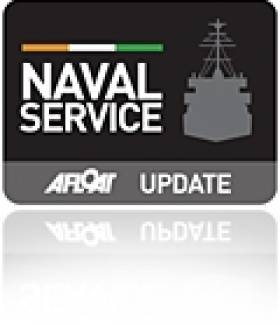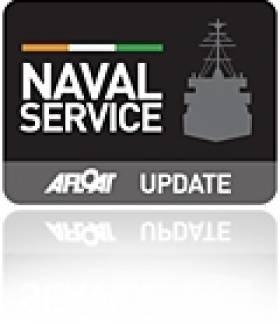Displaying items by tag: Newbuild James Joyce
#OPVJamesJoyce – The Naval Service lastest newbuild James Joyce is currently dealing with technical issues, though the Department of Defence in response to Afloat.ie say the OPV is due for delivery in the coming weeks, writes Jehan Ashmore.
She is the second of a trio of OPV90 class newbuilds that were ordered from Babcock Marine in the UK that saw L.E. Samuel Beckett (P61) enter service last year.
The north Devon shipyard is working on addressing the technical issues of James Joyce following recent completion of sea trails, noting the first sea-trials took place last month.
Previously it was understood that the newbuild was to make a delivery voyage to Cork Harbour last month.
James Joyce is a direct replacement of the former 'Aoife' which was decommissioned last January after a career spanning 35 years.
Appledore Shipyard Floats-Out New Vessel for Irish Navy
#OPVJamesJoyce – A new offshore patrol vessel for the Irish Navy has been floated for the first time, reports the BBC.
The Irish Naval Service's LÉ James Joyce was constructed at Babcock's Appledore shipyard in north Devon. The 90m-long vessel, with a top speed of 23 knots and a range of 6,000 nautical miles, is 92% complete.
Babcock was awarded the contract to build two offshore patrol vessels by Ireland's Department of Defence in 2010.
Babcock shipbuilding director, Andrew Hamilton, said: "We are delighted to achieve this important and highly visible milestone to quality, budget and schedule. "We will now be focusing on final outfit, completing sea trials and commissioning before handover to the Irish Naval Service early in 2015."
The vessel will undertake a range of duties including fishery protection, search and rescue, anti-pollution and maritime security duties.
For more related stories from the BBC click here.
Afloat.ie adds that her predecessor, L.E. Samuel Beckett (P61) the leadship of a trio of new OPV90 class newbuilds was launched as previously reported from the same Devon shipyard this month a year ago.































































